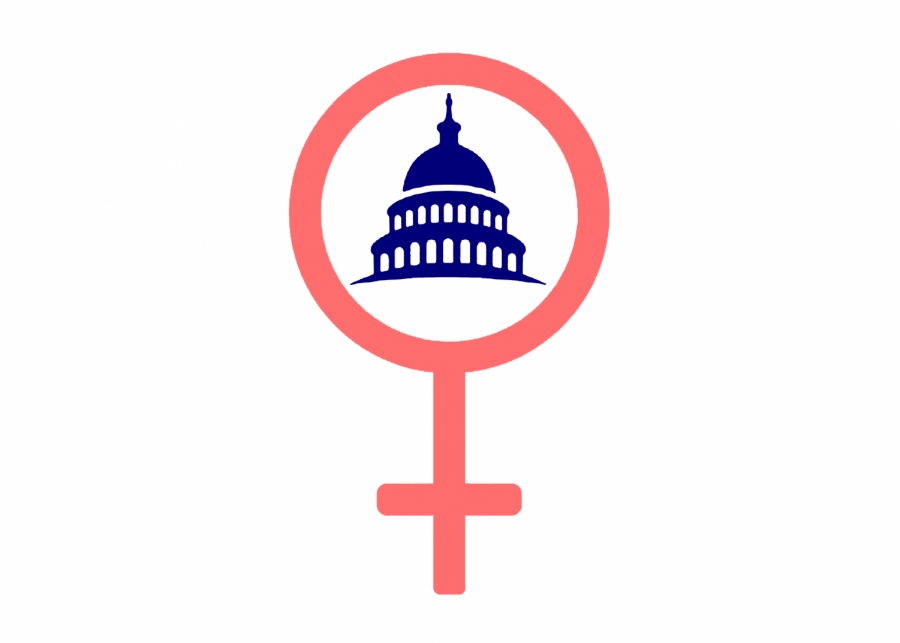What Kavanaugh’s confirmation could mean for pro-women policy in the coming years
October 19, 2018
The past month has seen an unexpectedly dramatic and historically divisive event—the confirmation hearings of Brett Kavanaugh for Supreme Court Justice of the United States. Early on in the hearings, the nomination seemed to be rather mundane and his confirmation appeared to be secured by Senate Republicans. However, in the final days before the vote, Dr. Christine Blasey Ford came forward claiming that Kavanaugh sexually assaulted her in the 1980s. Despite these allegations, Kavanaugh was confirmed to the Court and Democrats across the country have been outraged ever since. While some may feel that they are still in a state of despair over to the newest Supreme Court Justice, his confirmation may actually provide some hope for women’s policy issues in the years to come. Here’s why.
In 1991, a Supreme Court nominee found himself in a similar, albeit less severe position. Then-nominee Clarence Thomas was accused by attorney Anita Hill of sexual misconduct during her time as his employee. Much like Ford’s case, Thomas was confirmed despite Hill’s compelling testimony in front of the Senate Judiciary Committee. Although she may have failed in preventing the confirmation of Thomas, her testimony was not completely in vain.
Following Thomas’ confirmation, the U.S. Congress saw a surge of women running for elected office. In 1992, six women won seats in the United States’ Senate, tripling its female membership. Many saw this increase in elected women as a direct backlash against the confirmation of Thomas and therefore the election year became known as the “Year of the Woman.”
In the years that followed, key female rights legislation was passed during this period of heightened issue advocacy in Congress for women’s rights. For instance, the Family and Medical Leave Act of 1993, which required employers to provide family leave, gave working mothers job security and helped to promote women in the workplace. The Violence Against Women Act of 1994 was another groundbreaking law emerging out of this period that increased protection for victims of sexual harassment or assault by mandating training of law enforcement, medical professionals, and judges in the area of sexual assault. While the confirmation of Thomas was unpopular among women, a silver lining of the controversy was an unprecedented groundswell of legislative support for women’s issues and leadership.
With the upcoming 2018 election, it is possible that Kavanaugh’s confirmation could have a similar effect. According to NPR, a record number of women are running this year for the House of Representatives. A staggering 185 women having received nominations from major parties. More significantly, of the 185 women nominated, 143 are Democrats. Yet, the House is not alone. According to CNN, 22 women are nominated for Senate seats in the upcoming midterms. If all of the female candidates win, the Senate has the potential to have a record high of 26 female members come January. With this new influx of women into the House and the Senate, representation and advocacy of women’s issues in congress has the potential to be once again significantly increased.
Although Kavanaugh is viewed as a conservative, pro-life justice, the impact of his hearings might be the impetus for a new wave of pro-women policy and leadership.























Jill • Oct 24, 2018 at 10:49 pm
Yes, he was confirmed despite allegations…because there was no proof. Perhaps Blasey took a little tip from her own study about self-hypnosis and creating false memories.
kevin thomas • Oct 21, 2018 at 11:37 pm
It’s clear that the author here has done almost no research on the Clarence Thomas hearing. While some liberal Democrats found Anita Hill’s testimony “compelling”, largely for ideological reasons, the majority of Americans, including women, thought Thomas should be confirmed. Hill’s testimony was unsupported by any evidence, and there were several questionable elements in it.
As mentioned above, the majority of American women – according to at least two national polls – supported Thomas’ confirmation, so it is inaccurate to say ” the confirmation of Thomas was unpopular among women”.